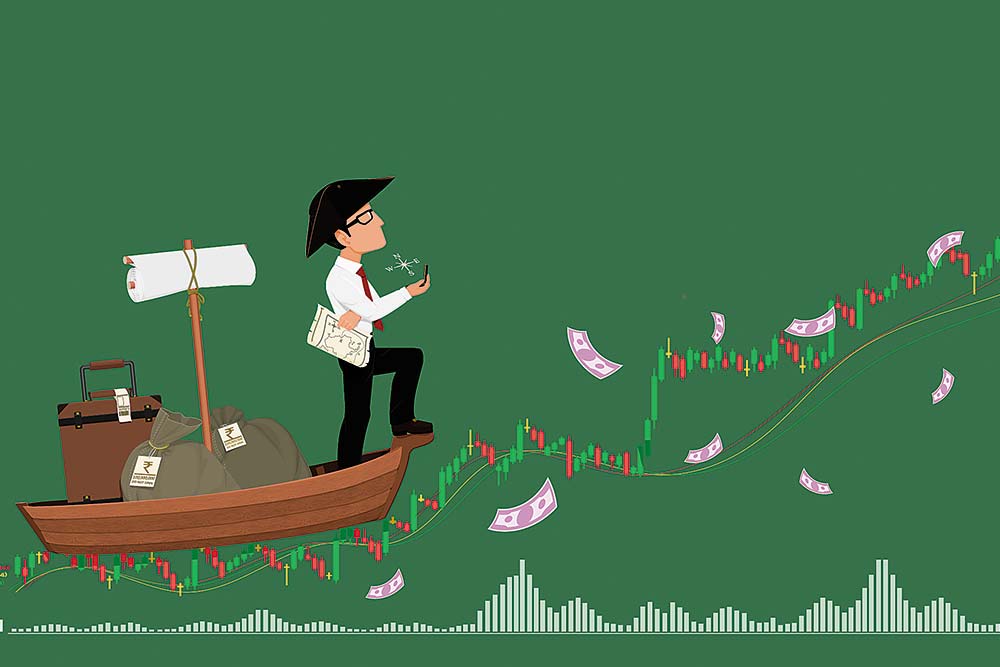Gold ETFs Are Good For Long-term Investment
Vinod Kumar, North Paravoor
I want to build a long-term portfolio for my daughter. Please suggest a good combination of gold exchange-traded funds (ETF), mutual fund systematic investment plans (SIPs) and stocks.
Considering that you want to make a long-term investment that is for more than 10 years, gold ETF is a very good alternative asset class to buying physical gold which has disadvantages such as storage risk and extra making charges if it is in form of jewellery. ETFs are cost-effective, liquid, tradable, and long-term hedges against inflation.
They can also be bought in small denominations to accumulate over the long term. Like any equity, there is a risk factor of NAV fluctuations in it but it is tax-effective. It attracts long-term capital gain tax.
There are a few asset management companies whose gold ETFs have given good returns. These are Goldman Sachs Gold BEes, Reliance R shares gold ETF, SBI gold ETF. If the investment is more than 10 years then one can think of investing in equity diversified or balanced funds, which with the same risk give higher returns over time.
Mutual funds: There are many good mutual funds like balanced MFs, which have given returns more than gold ETFs, with less risk. In the long term, the risk mitigates throughout more than 12-13 per cent.
You can start SIPs with different proportions in large-cap, aggressive small, and mid-cap funds. Few large-caps are Mirae Assets Bluechip Fund, Canara Robeco Bluechip Fund and Axis Bluechip Fund. Some mid-caps are Axis Mid-Cap, Franklin India Prima Fund and SBI Magnum Midcap Fund. The returns are around 20 per cent and above in mid-cap funds.
In the case of direct equity, the risk factor increases. If you can monitor actively, then you can buy a few blue-chips and promising mid-cap companies. Any asset class should be in proportion to balance your overall return.
All the above recommendations are based on the assumption of long-term investment and that you are well-versed with the risk versus return factor of investing in equity or equity MFs.
It is advisable to take help from a certified financial planner with proper risk analysis based on your goals and personal risk tolerance.
Hina Shah, Certified Financial PlannerCM & Financial Coach, LUHEM
Murugasen, Coimbatore
I have Rs 6 lakh and want Rs 20 lakh in five years. Which is better: an index fund or a diversified mutual fund? I find index fund expense ratio is only 0.2 per cent (HDFC Index fund) but HDFC Top 100 is charging 1.2 per cent.
If you want Rs 6 lakh to become Rs 20 lakh in five years, you need to invest in an avenue that is giving you 27.23 per cent compounded returns per annum. If you are investing in a mid-cap or a small-cap share or mutual fund, and if your luck plays a role, then you may get this kind of return.
If you are looking at getting index returns, you can invest in an index fund which is a passive fund. If you are looking at getting returns more than the index, then you can look for a consistently performing active diversified mutual fund scheme that is giving better returns than the index.
In the large-cap category, very few schemes are outperforming the benchmark index. However, if you look at flexi-cap, mid-cap, or other categories of mutual funds, you can find some good schemes. Even an outperformance of 2-3 per cent returns over a long period can make a lot of difference to the wealth you have created.
UMA S CHANDER, Certified Financial PlannerCM, Co-Founder, Handholding Financials

